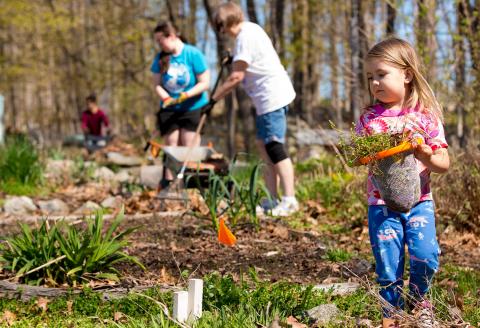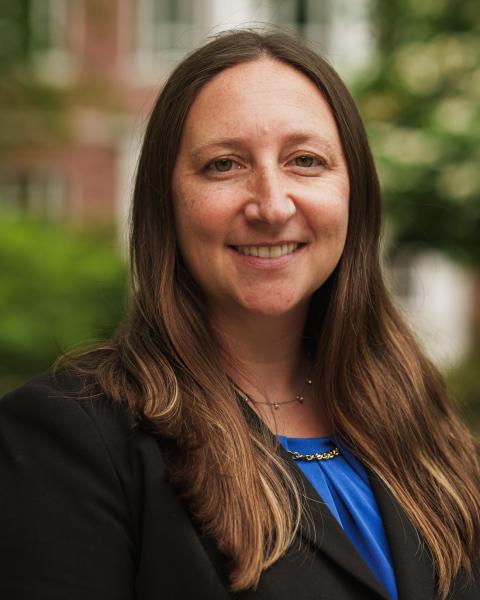Grow Food, Build Friendships — Find a Community Garden Using Extension’s New Online Map!

As the days get longer, the snow melts and the weather warms, it becomes time to start planning for the growing season. Home gardening is beloved tradition for many Granite Staters, but a lack of resources can prevent many would-be gardeners. A solution? Community gardens.
What is a Community Garden?
A community garden allows members of a community space to grow a variety of crops like vegetables and flowers. For a fee, you can rent plots of land or raised gardening beds. Some gardens have perks like tool sheds, shared tools, fencing and greenhouses. In these spaces, the renters can grow food for themselves. Production gardens are community gardens that specifically grow food that is then donated to others.
Why Join a Community Garden?
- Access land and/or raised beds located in a suitable spot for growing
- Learn tips from other gardeners
- Build friendships
- Help your neighbors facing food insecurity
How to Use the New Hampshire Community Garden Network & Map
Visit the online map: http://bit.ly/nhcommunitygardens
-
Use the map to see where community gardens are located throughout the state. A yellow dot indicates that it’s a garden to grow your own food; a blue dot indicates that it’s a production garden; and a pink dot indicates that it’s a garden for both individual growing and plots for production.
-
In the directory, click on the name of a community garden to learn more about the garden’s features, fees and contact information.

How Can Community Gardens Make a Difference?
Kaylin Lustig serves as the garden manager at Sycamore Community Garden in Concord. She says she put Sycamore on this mapping tool to make it easier for people to learn about her garden.
“Our community garden is focused on providing food security for refugee and low-income populations. Many refugees in our area live in dense, urban sprawl, yet they come from backgrounds where daily life was integrated with the land. For many this is their only access to land, where they can gather as a family, get to know others who have faced similar adversity and find connection to the natural world. Many crops they grow are hard to find in this country, so our garden offers food security in addition to preservation of cultural foodways heritage.”
If you have questions about community gardens in New Hampshire, please contact: Mary Tebo Davis, mary.tebo@unh.edu or Ruth Smith, ruth.smith@unh.edu
For mapping or technical questions, please contact: Casey Porter, casey.porter@unh.edu
Related Resource(s)
